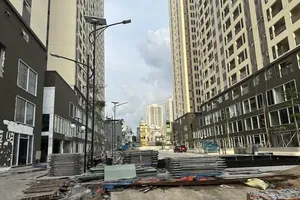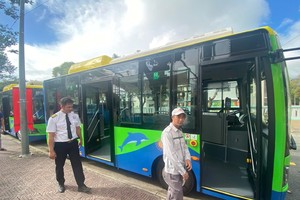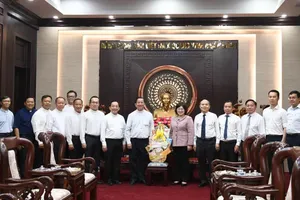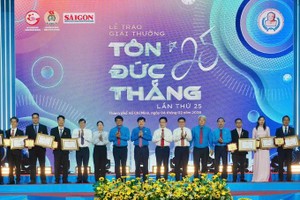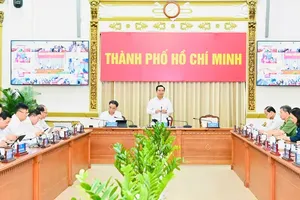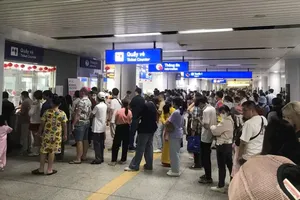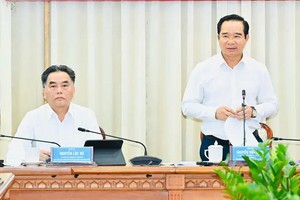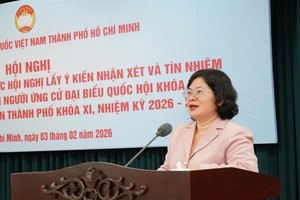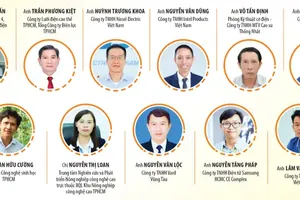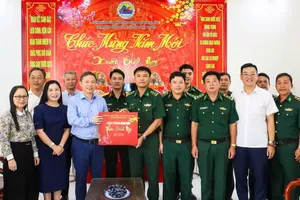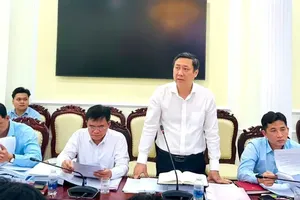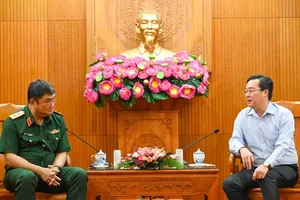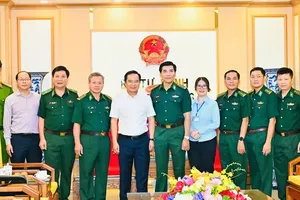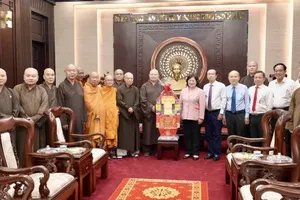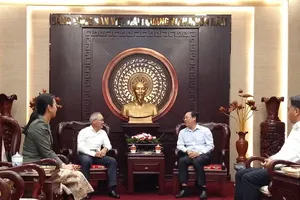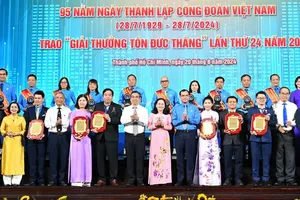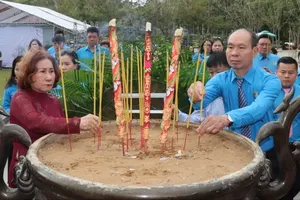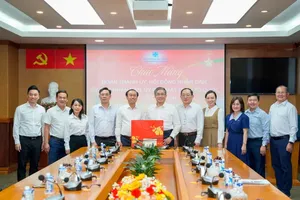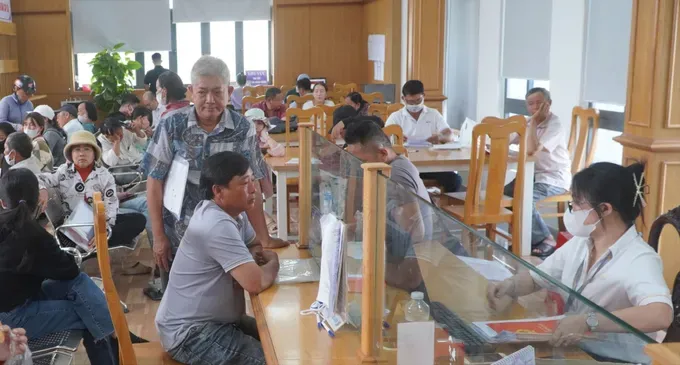
Yesterday morning, on July 2, Hong Nhu Ngoc from the HCMC Party Committee’s Propaganda and Mass Mobilization Commission – previously with the corresponding commission in the former Ba Ria-Vung Tau Province – arrived at Campus 1 to receive her new work assignment following the administrative consolidation. A shuttle bus was arranged for her commute from the administrative center at Campus 3 in Ba Ria Ward to central HCMC.
Despite the nearly 80-kilometer journey, Ms. Ngoc found it comfortable as she did not have to drive and could handle work en route. She expressed her readiness to work full-time at Campus 1 if a suitable position is arranged. However, with her family still residing at the former location, she hopes her agency will provide daily shuttle transportation. She also wishes for assistance in securing accommodation, ideally through social housing programs in central HCMC, to make her work life more convenient.
Le Xuan Kien, an official now facing a significantly longer commute, hopes for daily transportation support. For the long term, he seeks assistance with housing in central HCMC and hopes the city will implement special policies to increase official incomes, which would help him and others focus on work.
Like Ngoc and Kien, many officials require frequent travel between Campuses 1, 2, and 3 to perform their duties, a necessity during this initial operational phase of the newly expanded HCMC.
In late June, a survey by the HCMC Department of Construction of over 1,000 officials and employees from the former Binh Duong and Ba Ria-Vung Tau provinces revealed high demand for transport solutions. 95 percent expressed a need for shuttle services, with 83 percent requiring same-day return trips between Campuses 2, 3, and the central Campus 1. In response, HCMC has organized 12 daily round trips to shuttle officials between these locations.
The HCMC Public Transport Management Center announced that the initial phase will feature six daily transport slots (three departures and three returns) scheduled at two different times. This service will connect the administrative centers of Binh Duong and Ba Ria-Vung Tau with the HCMC Administrative Center, totaling 12 inbound and outbound trips. Service frequency will increase as travel demand stabilizes.
This plan offers free transport for civil servants and public employees of Party, State, and Fatherland Front agencies, as well as public non-business units. Employees can use their official ID cards to board the vehicles, which include four 45-seater and six 16-seater buses equipped with Wi-Fi. The vehicles are clearly marked with a “Civil Servant Shuttle” sign on the windshield for easy identification.
The shuttle service not only reflects the city leadership’s concern for its workforce but also helps ensure social welfare, maintain work continuity, and preserve stability within the post-merger administrative system.
This transportation challenge extends to remote areas as well. In the island commune of Thanh An, over 20 officials commute daily from the mainland. Despite early starts and ferry crossings, they maintain a positive and proactive attitude.
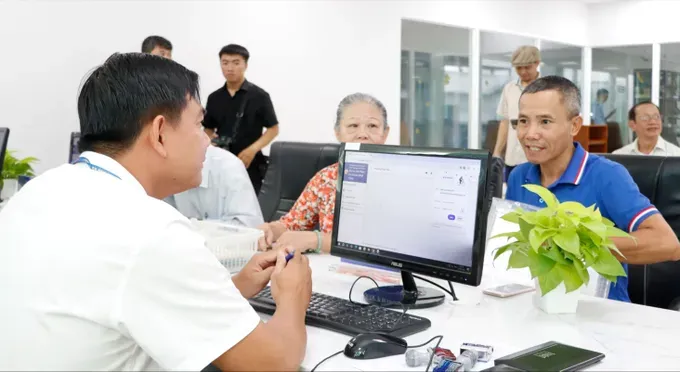
However, emergencies requiring urgent responses are complicated by reliance on public ferry schedules, posing significant challenges to timeliness, especially for commune leaders. According to the Thanh An Commune People’s Committee, a dedicated public-duty boat once served such needs but has since fallen into disrepair. The commune plans to request a replacement vehicle and regular maintenance to better support its staff.
Beyond transportation, the administrative restructuring has created a need for housing solutions. Many officials have been transferred to locations far from their homes where they own no property. While they need to rent public-duty or social housing near their new workplaces, many do not currently meet the eligibility criteria.
In response, the HCMC People’s Committee has submitted a formal proposal to the Ministry of Construction. It suggested that public-duty housing allocation be adapted to the city’s unique circumstances, covering individuals not specified in the 2023 Law on Housing.
Specifically, HCMC recommends expanding eligibility to include officials with a position-based allowance coefficient below 0.7, or those with no such allowance, who have been transferred between HCMC and the former territories of Binh Duong and Ba Ria-Vung Tau provinces.
The proposal also calls for supplementary standards for living space and furnishings to facilitate these new housing arrangements. This initiative aims to provide stable housing for officials affected by the provincial-level administrative reorganization.
HCMC deploys 22 officials to reinforce grassroots governance
The HCMC People’s Committee has decided to deploy 22 leading and managerial officials to wards, communes, towns, and special zones for a three-year term. This move is designed to strengthen grassroots governance and effectively implement the new urban administrative model.
Among those deployed is Tran Thi Tuyet Hong, former Deputy Chief of the Office of the Delegation of National Assembly and HCMC People’s Council Deputies, who will take on a new role at the People’s Council of Vuon Lai Ward.
Hong expressed her honor and enthusiasm at being entrusted by city leaders to embark on this new “journey”. She noted that the deployment offers an opportunity to connect more closely with residents, listen to their concerns, and develop comprehensive solutions to improve the quality of public service.
In recent days, the newly assigned officials have been actively familiarizing themselves with their new localities to participate in the trial run of the two-level government model. “As a provincial-level official assigned to a grassroots role with a completely new organizational structure, this is both a challenge and an opportunity for us to train, contribute, and mature professionally”, Hong stated.
